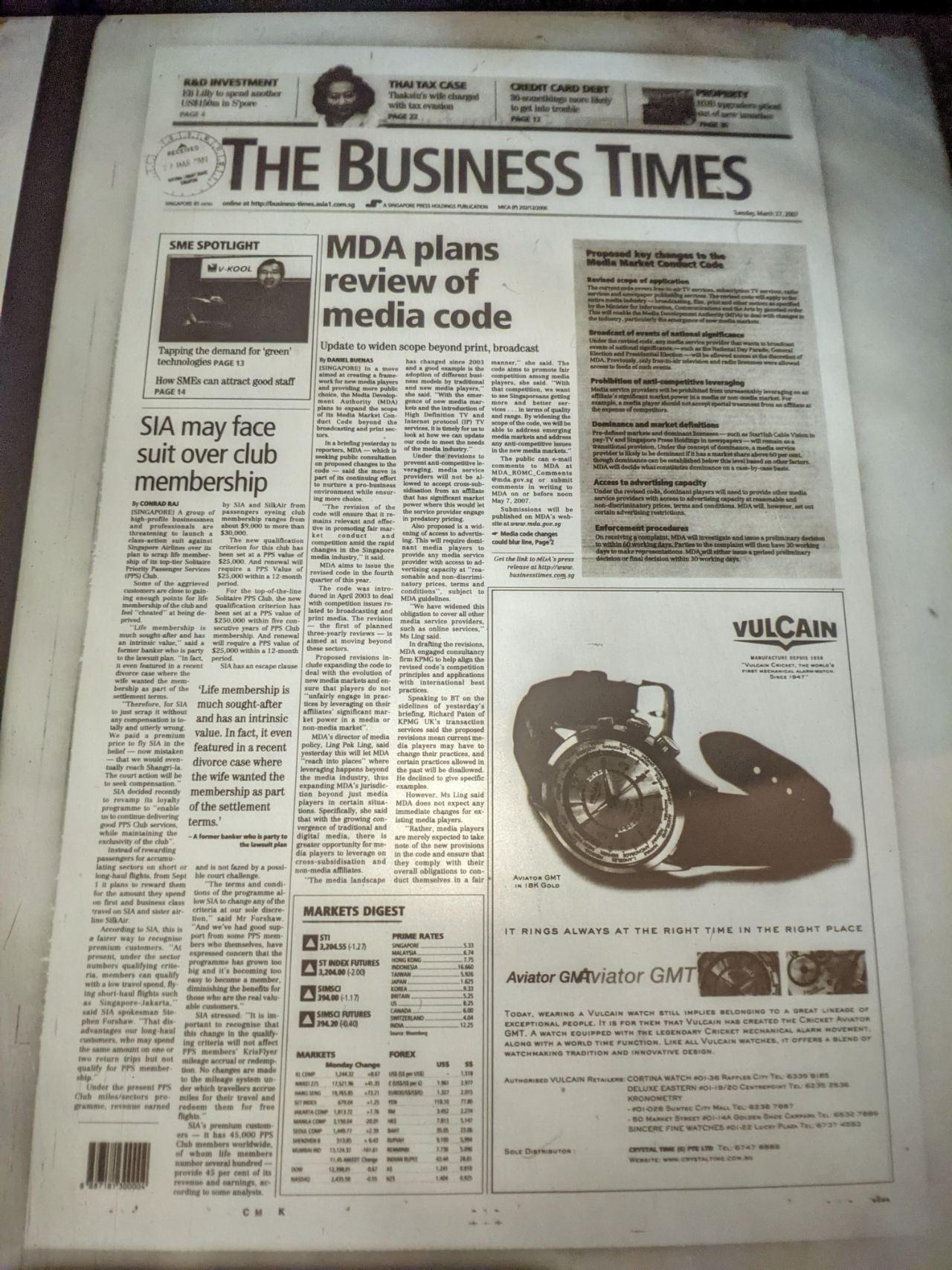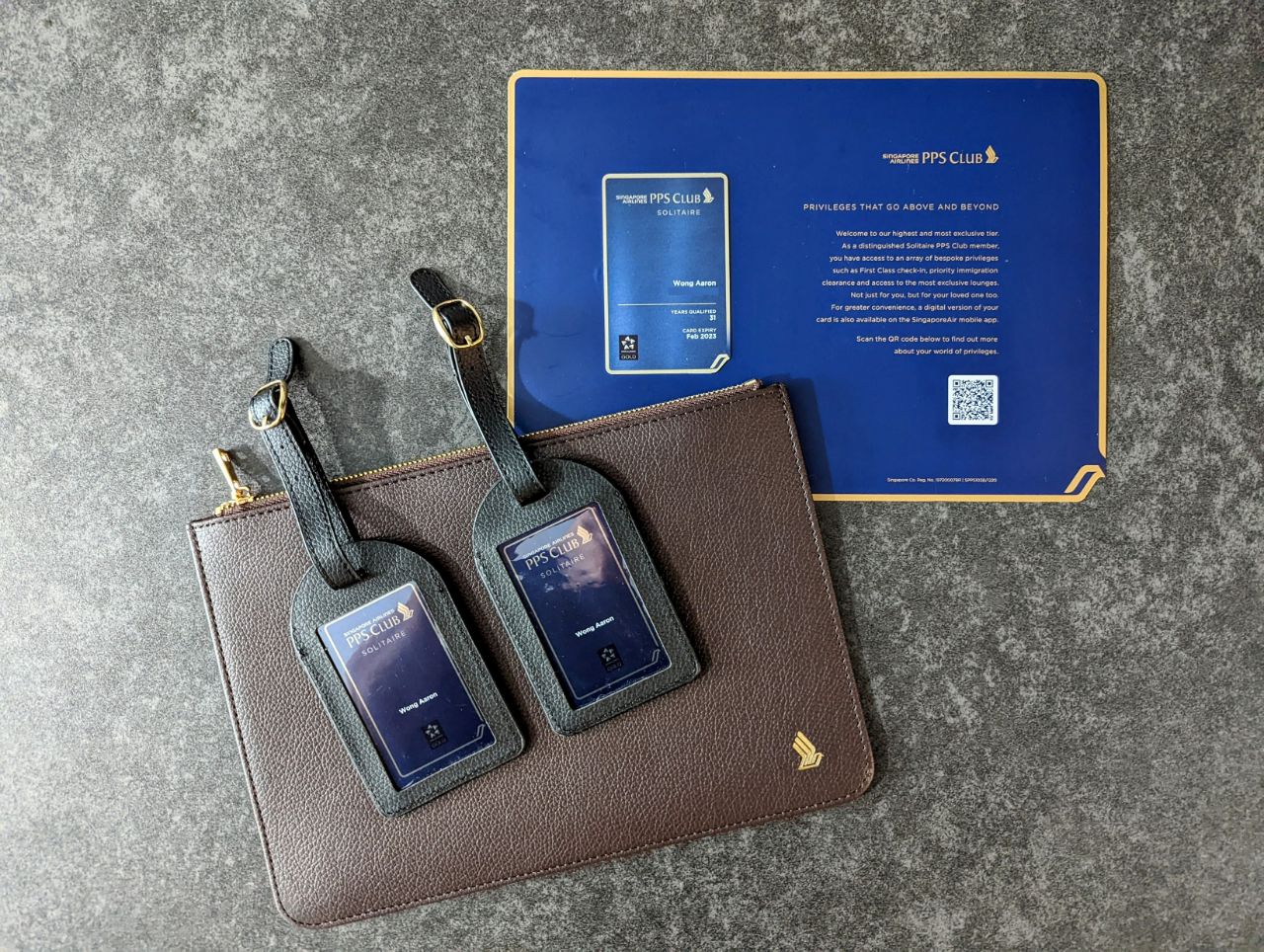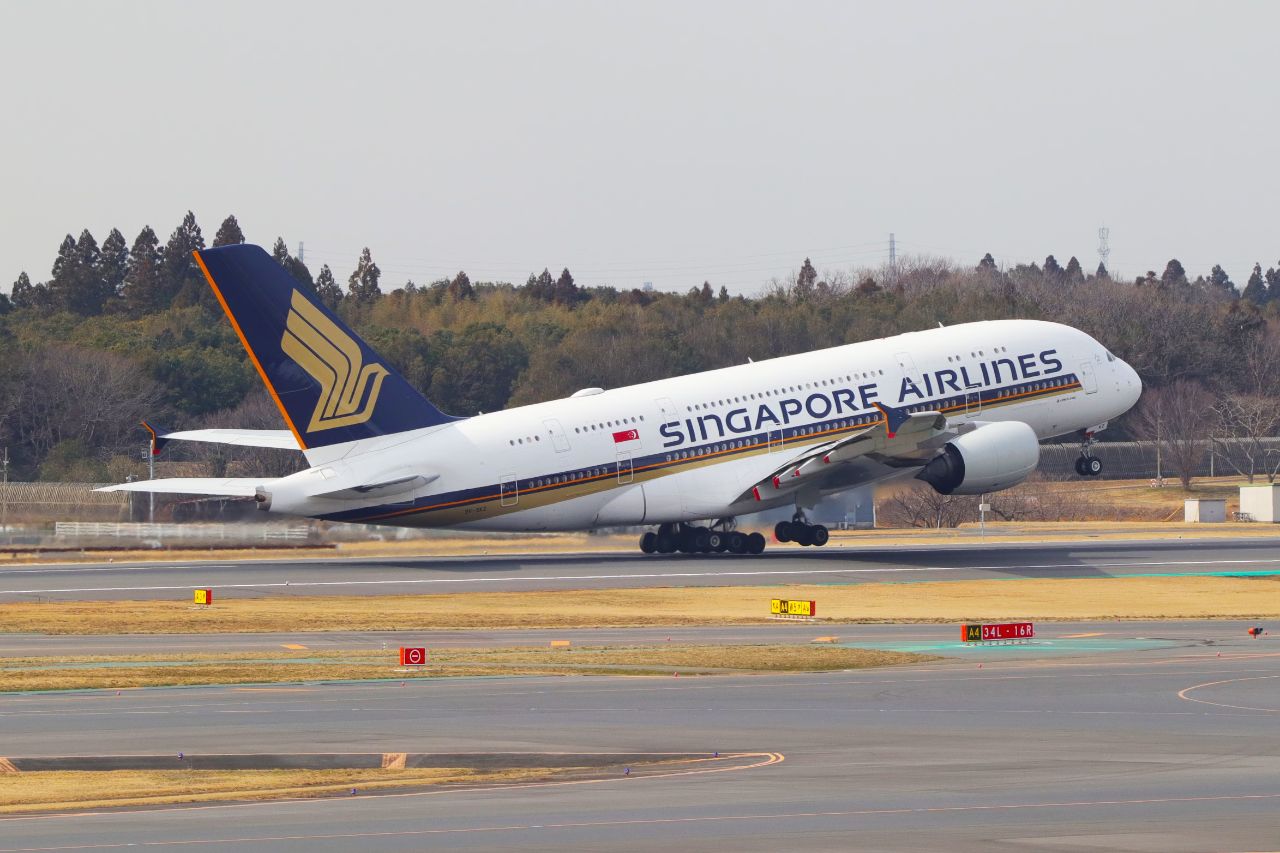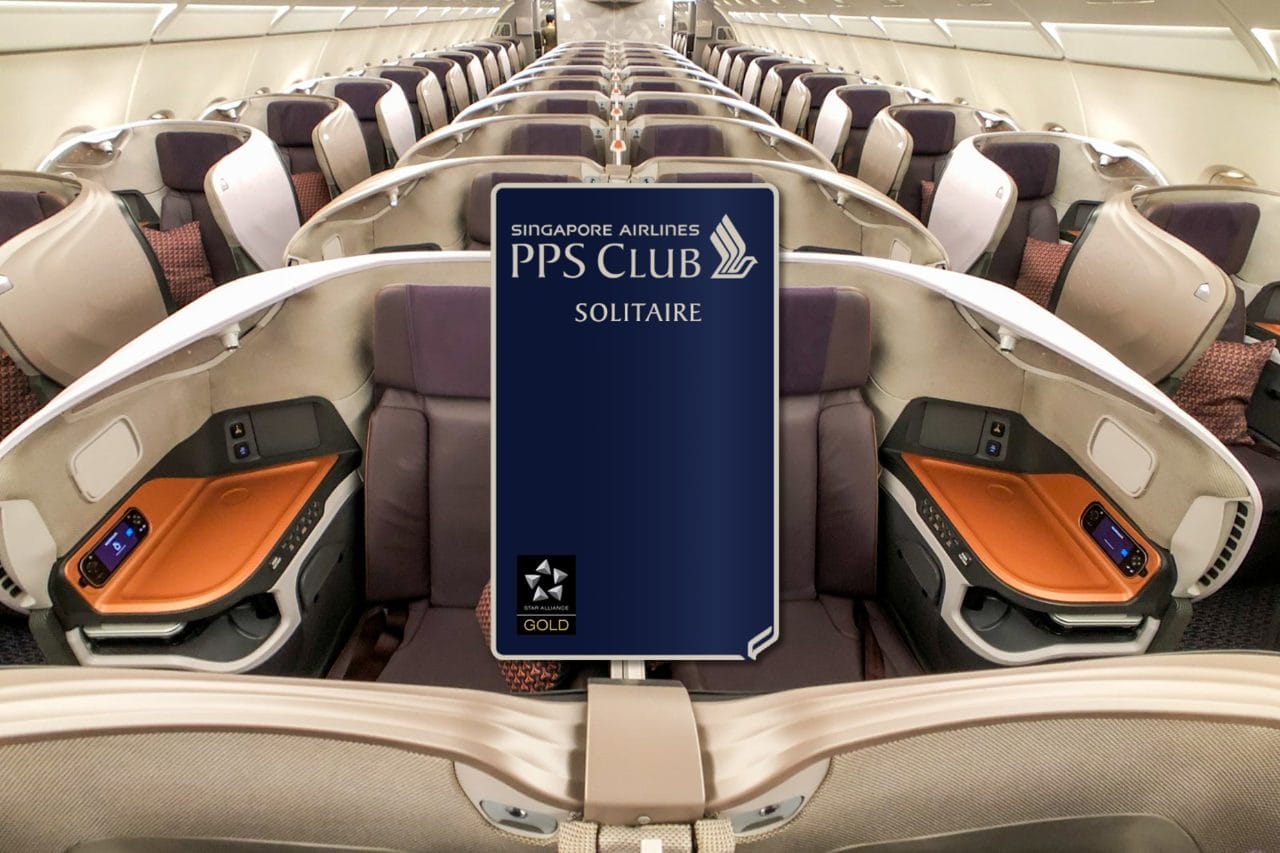Once upon a time, Singapore Airlines granted lifetime status to Solitaire PPS Club members who accumulated at least 1,875,000 miles or 1,000 PPS Sectors.
For perspective, 1,875,000 miles is about 111 round-trips between Singapore and San Francisco, and even if you qualified through the easier PPS Sectors route, that’s still a heck of a lot of flying.
But the reward was worth it: no more worrying about requalification, no more last-minute status runs, no more desperate negotiations with your boss for one more business trip. As the name suggests, Life Solitaire PPS Club Members received the full perks of Solitaire PPS Club status — and perhaps some unpublished ones too — for life.

Unfortunately, SIA’s bean counters decided that lifetime status was unsustainable, and decided to eliminate the programme in September 2007. This sparked an almighty kerfuffle and even an (unsuccessful) lawsuit, where one of the plaintiffs said, rather poetically, “We paid a premium price to fly SIA in the belief — now mistaken — that we would eventually reach Shangri-La. The court action will be to seek compensation.”

The only consolation was that an exception was carved out for existing Life Solitaire PPS Club Members, allowing them to continue enjoying lifetime benefits even though new members were no longer accepted. The exact number is a closely-guarded secret, though at the time, analysts estimated the airline had “several hundred” life members worldwide (versus 45,000 PPS Club members, in case you were curious).
More than 17 years have passed since that fateful day, and as time rolls on, lifetime status will become more and more of a distant memory. But the grandfather clause does raise an interesting question: How exactly does Singapore Airlines know when a Life Solitaire PPS Club Member dies?
Why is lifetime membership particularly tricky for SIA?

Singapore Airlines isn’t the only airline whose frequent flyer programme has (or rather, had) a lifetime membership tier, of course. Other airlines offer lifetime membership too, but identifying deceased members is relatively less important for them.
At the risk of stating the obvious, when a lifetime member passes, they stop incurring cost to the programme. Short of a family member getting a name change to impersonate the deceased (and I wouldn’t put it past some people, quite frankly), there’s no way the lifetime status can be used by anyone else- you can’t attach another person’s frequent flyer number to your boarding pass. Therefore the problem, if you want to call it that, is self-limiting.
But the Solitaire PPS Club is different because members enjoy a supplementary card, which grants virtually identical benefits to a nominee of their choice (usually a spouse or family member, though it doesn’t have to be).
| ❓ What benefits do supplementary cardholders not enjoy? |
|
While supplementary Solitaire PPS Club members enjoy largely the same benefits as principal members, here’s the differences:
|
So if the termination of the Life Solitaire PPS Club membership also means the loss of the supplementary card, wouldn’t the member’s family have every incentive not to let the airline know about the principal member’s passing? After all, it’s not hard to imagine a scenario where the lifetime member gives the supplementary card to their child or spouse, who can continue enjoying the benefits even after the lifetime member is no longer around.
And since it’s not particularly difficult for a lifetime member to turn over control of their account to a next-of-kin, what’s to stop a conga line where the supplementary card keeps changing hands indefinitely?
Hello, are you alive?
Unsurprisingly, Singapore Airlines declined to comment on how they go about verifying their Life Solitaire PPS Club Members are actually, well, alive, but there are some obvious ways.
Inactivity monitoring

The simplest way of fishing out dead life members (that’s quite the oxymoron!) is to monitor their accounts for signs of activity.
For example, if a member’s account shows no earning or redemption activity in a given period, their account may be inactivated, pending reverification via customer service. That said, short of a video call or face-to-face interview, I’m not sure how the airline could verify they were actually speaking to the lifetime member, much less how that conversation would go (hello, are you still alive?).
But it’s relatively easy to an account to show activity, even if the member is no longer around. Access may have been granted to next-of-kin who could make award redemptions, and even if the programme requires evidence of earn activity (instead of just burn), it’s not difficult to do that with Kris+. If the next-of-kin have access to the lifetime member’s KrisFlyer account, it’s a simple matter of logging into Kris+ and earning some miles here and there.
A step up from that would be to check whether the lifetime member has had any recent flight activity. That’s a higher threshold of verification, since you can’t show up at the airport to fly under an identity that isn’t yours. Then again, there’s no rule that a lifetime member must fly at least X times a year, and there could be innocuous reasons for a prolonged period of inactivity, so I can’t imagine there’d be a strong basis to revoke a membership based on this alone.
Social media monitoring
Lifetime members have given Singapore Airlines so much business over the years that they’re almost certainly known quantities within the company. What I mean by this is that they may be on a first-name basis with senior executives, and the airline would at the very least be aware of their public profile and social media presence.
So that offers another avenue of checking whether a member is still alive. Chances are that lifetime members are mover and shaker types, so if they were to pass, word would get around quickly.
Obituary monitoring
And of course there’s the obvious: monitoring the obituaries. It might sound morbid at first, but if you think about it, that’s probably the most effective way of doing so. There’s no law that says you must publish an obituary for a deceased person, but it would be a little weird if the family declined to have one for the sole purpose of retaining the deceased’s elite status!
Given how few lifetime members they are, it wouldn’t be hard to set up some sort of automated monitoring that would flag any hits. But then again, even if they do spot a name, it create a potentially awkward situation. What do you do, send a funeral wreath and a notification of account closure?
Conclusion

Singapore Airlines stopped awarding lifetime status in 2007, but there’s still an existing crop of Life Solitaire PPS Club Members thanks to the grandfather clause.
Although the number gets smaller with each year that passes, my guess is that we won’t see the last of the programme for some time yet. Think about it: while rare, it’s not unheard of for a child to qualify for Solitaire PPS Club status (the minimum age to open a KrisFlyer account is two years).
It then follows that there must be some lucky children out there — probably in their mid to late 20s by now — who earned Life Solitaire PPS Club status just before the window shut, and now have many years ahead of them (hopefully!) to enjoy it.
It’s anyone’s guess as to how exactly SIA goes about verifying these members are still alive, but I’m sure they have their ways. The bigger question is how to tactfully close a deceased member’s account!
If you’re a Life Solitaire PPS Club Life Member, I’d love to hear your experience. Do you get annual “are you alive calls” or something?








can your supplementary life membership also give life membership to NOK?
There is no way the youngest lifetime PPS member (not supp) is in his late-20s, but I would love to be proven wrong
the programme ended in 2007 and it’s 2024 now so that’s 17 years. i’m giving some buffer because i assume you can’t earn it in just 1 year…but i guess maybe mid-20s is possible?
You can’t sign up to KF in the first place if you are less than 2 years old, so minimally it’s 19 years and not 17. And if you’ve earnt the status at that young of a age, 99% it wouldn’t have been due to mileage runs (because if your family had the $ for that, you wouldn’t really need PPS in the first place) but through genuine flying based on need. Would imagine this would be a good 5-10 years. Even today, I don’t see that many TPPs in their 20s, 30s. Certainly not impossible but not easy to… Read more »
You’re conflating probability with possibility. It would be rare but it’s certainly possible.
Will the youngest LPPS pls stand up then. My guess is no younger than 40
There was someone (probably siblings as they were selling two) who was selling yearly supplementary invites for $9,000 per year and taking offers for lifetime invites. And they said they were in their 30s.
Achieving LPPS as a child could be possible, what with all the whining about children flying in First and all – there’s gotta be a bunch of the little blighters.
More seriously, what’s the estimate on number of PPS/Solitaire members?
Check the age of the main Card holder